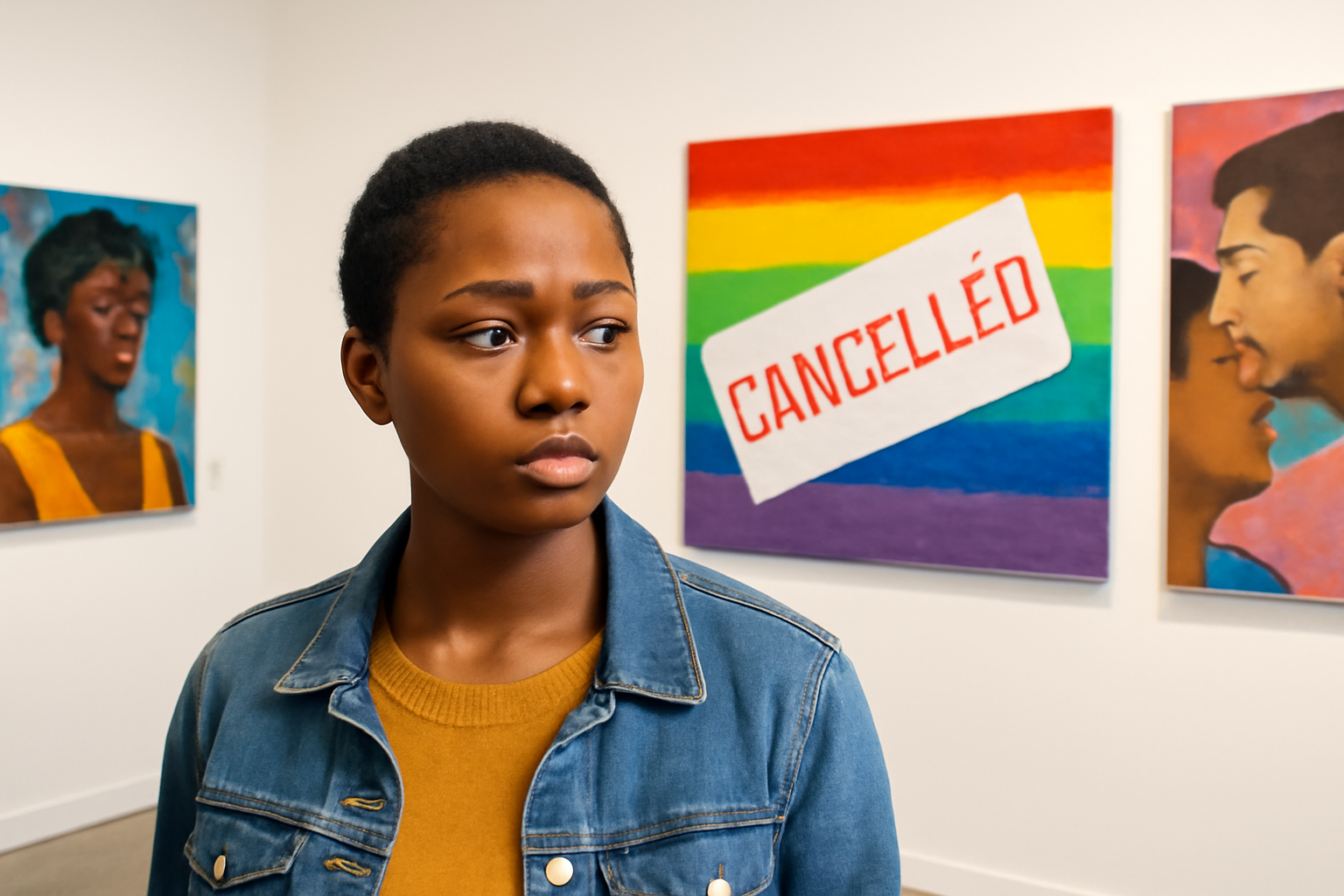
In a disheartening turn of events, an art gallery in Washington D.C. has abruptly cancelled two exhibitions that were set to showcase the works of Black and LGBTQ+ artists. This decision follows recent federal actions targeting diversity, equity, and inclusion (DEI) initiatives.
The Art Museum of the Americas, affiliated with the Organisation of American States (OAS), was gearing up to host these exhibitions in March. However, the curators, Cheryl D. Edwards and Andil Gosine, were informed by the museum's director, Adriana Ospina, that the shows would not proceed, though no detailed explanation was provided.
Edwards' exhibition was primarily composed of works by Black artists, while Gosine's lineup focused on art from queer people of color. The cancellation arrives shortly after a significant executive order from President Trump, which aims to dismantle what he described as "radical and wasteful" DEI programs. The order effectively withdraws federal funding from these initiatives.
The OAS, although an international nonprofit, receives a significant portion of its financial support from the United States. Consequently, the museum, reliant on this funding, feels the pressure to comply with the executive order to safeguard its monetary resources. This ripple effect has already impacted other prominent cultural institutions such as the National Gallery of Art and the Smithsonian, which have shuttered offices aimed at racial minority support and collection diversification. Furthermore, the U.S. Marine Band recently nixed a project with young musicians of color.
Cultural Impact of the Cancellations
Cheryl D. Edwards expressed to the Washington Post her belief that the decision to cancel her exhibition is a direct consequence of the executive order, as her work was positioned within the DEI framework. Her exhibition, titled "Before the Americas," was designed to feature the rich artistic traditions of African-American, Afro-Latino, and Caribbean creators, exploring the enduring legacy of the transatlantic slave trade through their art.
"This move to push out DEI initiatives from government projects is essentially silencing artistic voices," Edwards remarked. The cancellation of such exhibitions not only affects the artists involved but also deprives the public of the opportunity to engage with diverse cultural narratives and histories.
Andil Gosine, in an interview with the Guardian, noted that the museum's preemptive compliance with the executive order, even before any direct enforcement, is particularly concerning. "There’s a long history of the arts being attacked by conservative forces. What I’m disappointed about with the OAS is that this is not Trump’s action; this is anticipating. This for me is even scarier because it feels like we have this closeup view to how fascism unfolds," Gosine stated.
His exhibition, "Nature's Wild," represented a deeply personal endeavor, reflecting years of dedication. The cancellation, he explained, was a severe blow given the effort and personal connection he had invested in the project. "I have not put more resources or time into any project," Gosine lamented. "This was to be the feather in my cap because it was a very personal project. I grew up in Trinidad; the exhibition was around unpacking a life. The signature image for the exhibition was an image of me at three years [old]."
The exhibition promised a rich tapestry of artistic expressions, including sculpture, photography, video, and various forms of painting and installation art by a diverse group of artists from the LGBTQ+ community in Canada and the U.S.
The preemptive measures taken by the Art Museum of the Americas to cancel these exhibitions have sparked conversations about the broader implications of political actions on cultural institutions and the arts community. As these discussions unfold, it remains to be seen how the arts sector will navigate the challenges posed by such policies.
While the curators and artists grapple with the immediate consequences of the cancellations, the broader cultural community continues to advocate for the importance of diversity and inclusion in the arts. The dialogue surrounding these cancellations underscores the ongoing struggle for representation and recognition of marginalized voices in cultural spaces.
This incident serves as a poignant reminder of the fragile state of artistic expression in the face of political and ideological pressures, and highlights the need for continuous support and advocacy for diverse artistic practices.
Related Posts
Triumphant Trans Woman Wins Legal Battle and Inspires Others to Stand Up for Their Rights
Breaking new ground: a landmark victory in transgender rights After battling in courtrooms and enduring endless challenges, Diana Portillo, a transgender woman, has secured a monumental victory in her decade-long fight against workplace discrimination. The result? Nearly $1 million awarded in a historic settlement. But this isn't just a win on paper—it represents a powerful precedent in combati [...]
Pride Month in Latin America: Protests and Demands for Equality
**Celebrating Pride and advocating LGBTQ+ rights in Latin America** Pride Month in Latin America was a lively mix where celebration met activism. Communities united, not just throwing a party but making a stand—demanding equality and pushing governments toward better protection and rights recognition. Throughout Latin America, pride events erupted in marches and cultural displays, each with a c [...]
Transgender Erasure Actions Implemented by National Park Service
```html Trump administration's impact on national park service and transgender recognition The Trump administration made notable moves in undermining transgender representation, which included directing agencies like National Park Service not include "T" and "Q" when they refered “LGBTQ” in any official communication. This move seems part a broader plan by this administration aimed at reducin [...]